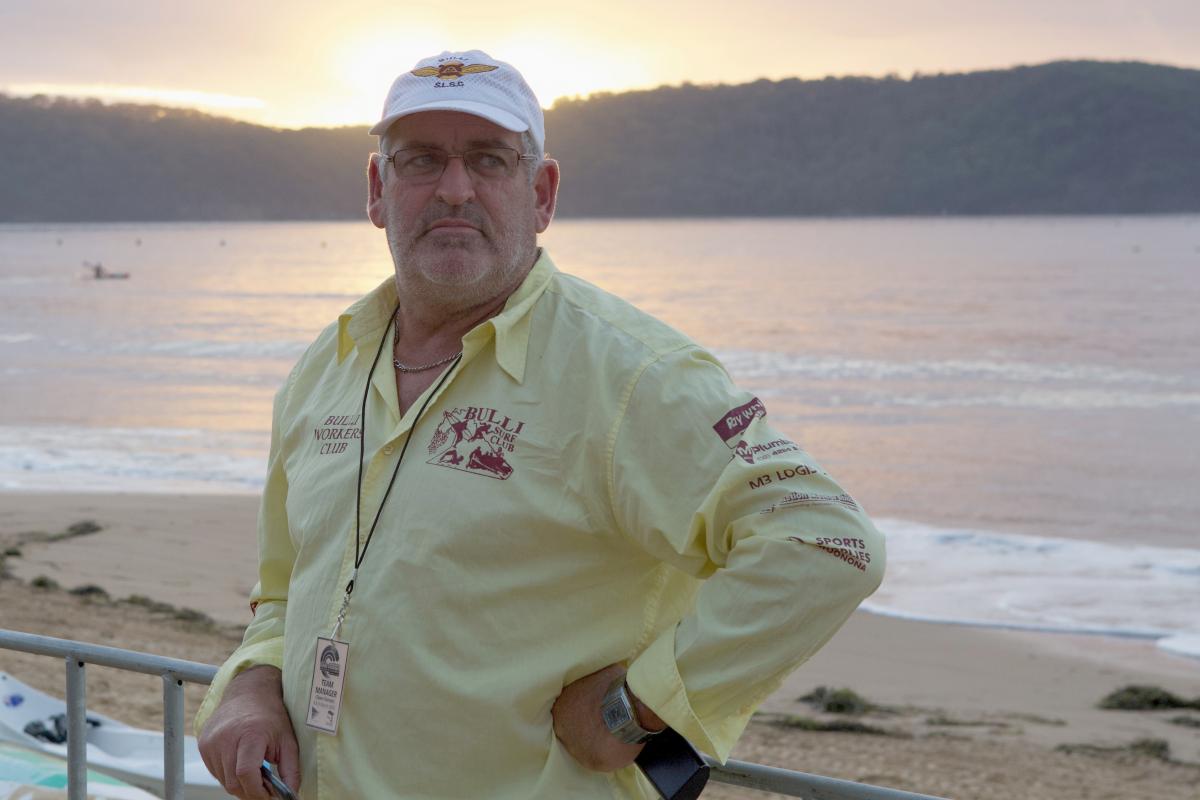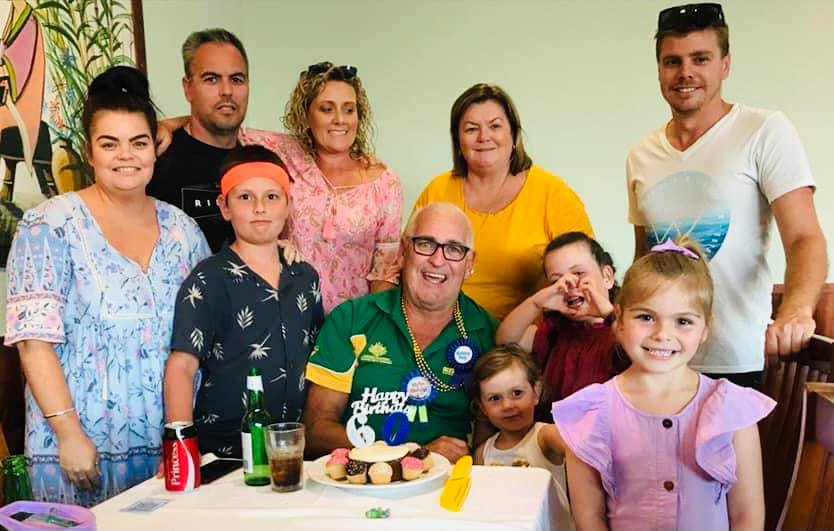Keith Caldwell died as he lived – serving the community.
“It’s one last act he could do. Three people are alive because of him,” Keith’s widow Maria said, from their home at Woonona on the NSW south coast.
The family of the much-loved former policeman and veteran surf lifesaver chose to donate his organs and body tissue after he had a stroke and died at RPA’s Intensive Care Unit earlier this year.
“After 45 years of lifesaving, he is now a life saver. He was saving lives right to the end,” Maria said.

Keith, aged 60, donated his liver, kidneys and musculoskeletal tissue which includes heart valves and other heart tissue, bone, tendons, ligaments and skin.
As a result, two people on the nation’s transplant wait list received a new kidney, while another received Keith’s liver, but later had to have another transplant. Keith’s musculoskeletal tissue has been stored at the NSW Tissue Bank.
His heart and lungs were also suitable for transplantation, but because of his rare blood type a match wasn’t found.
“The process to donate organs and tissue is very thorough and, at a time of deep sadness, could be considered very confronting. But, with the possibility of saving other people from the heartache we as a family were going through, it gave us hope and comfort,” Maria said.
The family was supported by one of Sydney Local Health District’s donation specialist nurses, Kelly Lewis, who works across Concord and RPA hospitals.
“Maria and her family had asked if organ donation was possible. I chatted with them and provided them with information, care and support during the donation process,” Kelly said.
The Organ and Tissue Authority states about 80 000 people die in Australian hospitals each year, but only about two per cent of them can be considered for organ donation.
To be an organ donor, a person must die in a hospital’s Intensive Care Unit and be medically assessed as suitable to donate organs for transplantation.
There are about 1650 Australians waiting for a life-changing organ transplant.
Data shows that in 2020, 463 deceased organ donors and their families saved the lives of 1270 organ recipients.
The Authority states more than seven million people are on the Australian Organ Donor Register – which equates to one-in-three (or 34 per cent) of the eligible population.
The Authority estimates there are about another 13 million Australians aged 16 and above who are eligible to register as organ and tissue donors.
Maria and her family chose to encourage people at Keith’s memorial service to add their names to the Register.
“Have the conversations with your loved ones. Tick that box that says yes, next to the question ‘Do you want to donate your organs?’” Keith’s son Jamie told the congregation.

Hundreds of people attended the service including NSW Police Deputy Commissioner Jeff Loy and NSW Police Assistant Commissioner Mark Jones who reflected on Keith’s 30 year policing career – particularly his stint as an undercover operative.
Members of the Bulli Surf Life Saving Club paid tribute too. Keith joined the Club as a teenager in 1975 and was a gifted surf sports athlete winning branch, state and national titles.
He later became a team manager and administrator and was the Bulli Surf Life Saving Club’s President for the past 17 years – the longest serving president in its 108 year history.
Earlier this year, he was awarded life membership of Surf Life Saving Australia – the organisation’s highest accolade – in recognition of his decades of service.
The Club held a memorial paddle out at Bulli Beach in Keith’s honour.
His family has set up the Keith ‘Cocky’ Caldwell Foundation in his memory, to support young people to achieve their life goals.
Maria describes organ donation as Keith’s “greatest gift of all.”
“This was Keith’s last act of selflessness and giving to the community. Please, please, please have this discussion with your loved ones. Let them know your wishes,” she said.
The easiest way to register as an organ and tissue donor – or to check if you’re registered – is on the DonateLife website, at donatelife.gov.au/register.
Story credit: Clare Mathie, Sydney Local Health District.
Tuesday 27 July 2021